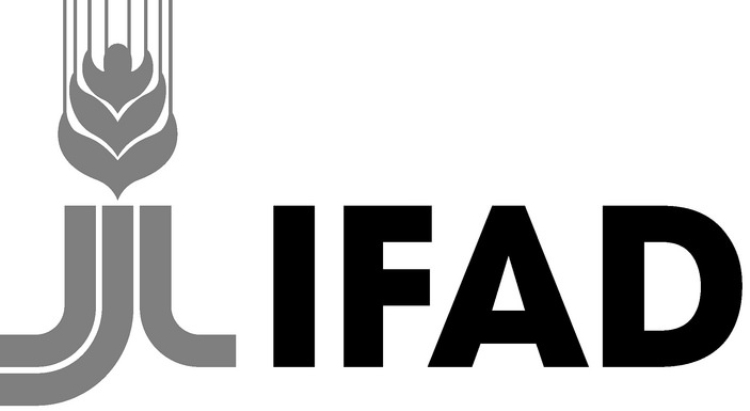IFAD President Urges German Leadership to Bridge Global Inequality Divide
Lario’s appeal comes against a sobering backdrop of escalating global challenges. Despite increasing global wealth, inequality is widening dramatically.

- Country:
- Germany
At a pivotal moment for international cooperation and global sustainability, Álvaro Lario, President of the International Fund for Agricultural Development (IFAD), has called on Germany to assume a leadership role in addressing some of the most pressing challenges facing the world today. Speaking at the Hamburg Sustainability Conference (HSC), Lario emphasized that Germany’s voice and influence are essential to rekindling global solidarity amid mounting economic disparity, climate instability, and geopolitical fragmentation.
The high-level conference, hosted in Hamburg, Germany, convened prominent policymakers, development experts, and international organizations to chart a course toward a more inclusive and sustainable future. Germany, with its economic strength and strategic partnerships, was repeatedly highlighted as a key actor in shaping global development outcomes.
A World in Crisis: Hunger, Displacement, and Inequality
Lario’s appeal comes against a sobering backdrop of escalating global challenges. Despite increasing global wealth, inequality is widening dramatically. Hunger has soared, tripling since 2018, with nearly 300 million people suffering from acute food insecurity in 53 countries. Armed conflicts and forced displacement have reached record highs, and climate-related disasters—such as droughts, floods, and temperature extremes—are growing in frequency and severity.
“The world stands at a historic crossroads,” Lario told conference attendees. “We face interconnected crises that require collective action, yet development financing remains far below what is needed. We face an estimated US$4 trillion annual gap to achieve the Sustainable Development Goals.”
Lario stressed that development cooperation is not just a moral imperative but a practical necessity for global peace, economic stability, and climate resilience.
Germany’s Role in Driving Change
Germany’s Federal Ministry for Economic Cooperation and Development (BMZ) has long been a major partner in global development. On the sidelines of the conference, Lario met with Reem Alabali-Radovan, Germany’s Federal Minister for Economic Cooperation and Development, to discuss deepening IFAD's strategic cooperation with Germany. Their conversation focused on tackling hunger and poverty in rural regions, supporting young people, and investing in sustainable food systems.
“Germany has a unique opportunity to catalyze private sector engagement and drive transformative change,” Lario said. “Its leadership is critical in narrowing the development divide between the Global North and Global South.”
IFAD's work aligns closely with Germany’s goals for global development, including empowering women, supporting climate-smart agriculture, and creating long-term economic opportunity in fragile and rural communities.
The Case for Investing in Rural Communities
Lario used the conference platform to advocate for increased investment in rural development, particularly in small-scale food producers. He participated in a closed-door high-level dialogue on international financial flows and the reform of the current rules-based economic order.
“Investment in small-scale food producers is not charity—it’s a strategic move for global stability and resilience,” he said. “These investments strengthen food security, reduce reliance on emergency aid, and lessen the migration pressures that arise when rural livelihoods collapse.”
According to IFAD, more than 80 percent of the world’s poorest people live in rural areas, yet they remain largely overlooked in global investment plans. Small-scale farmers produce one-third of the world’s food but receive less than 1.7 percent of global climate finance. Lario argued that prioritizing this sector could yield powerful returns.
Tapping the Potential of Rural Youth
A major focus of IFAD’s work is expanding opportunity for the world’s 1.2 billion young people, nearly 90 percent of whom live in developing countries. Many of them reside in rural areas where unemployment is high and economic opportunities are scarce. Without meaningful prospects, many young people see migration—often unsafe or irregular—as their only option.
Yet Lario pointed to agriculture and food systems as sectors with enormous untapped potential. With the right support and innovation, these industries could generate over US$4.5 trillion in new business opportunities annually and create 120 million new jobs—many of them for youth.
“We need to flip the narrative,” said Lario. “With smart investment, agriculture becomes a driver of opportunity, innovation, and resilience. It turns migration from a necessity into a choice.”
Looking Ahead: A Call for Global Solidarity
As the Hamburg Sustainability Conference concluded, Lario’s message stood as a resounding call to action. He urged world leaders, particularly Germany, to step up as champions of fairness, investment, and international cooperation.
“Now is the time to rebuild trust and reignite the spirit of global solidarity,” Lario said. “Together, we can unlock prosperity for rural communities, address hunger at its root, and build a fairer and more resilient world.”
IFAD continues to play a leading role in delivering impact where it is most needed—on the frontlines of food insecurity, climate change, and economic marginalization—while pushing for transformative global partnerships that serve the many, not just the few.










